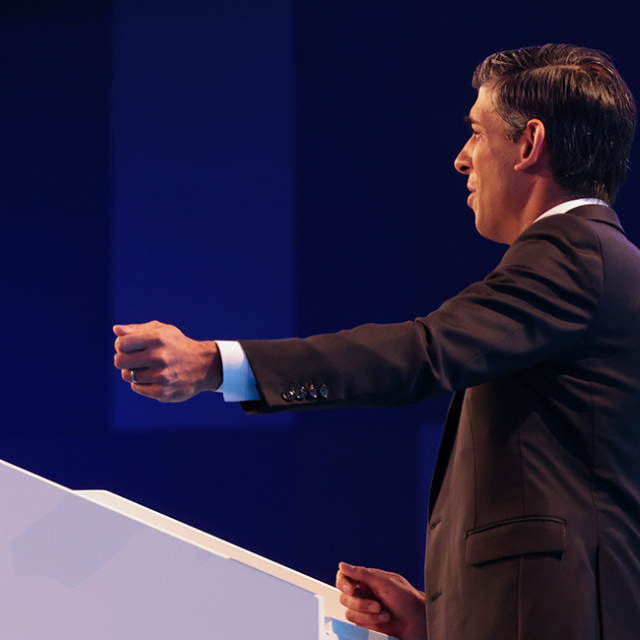Network North – Unpicking the Prime Minister’s new plan for transport

So, after weeks of rumours and a bit of ‘in-out hokey-cokey’, the Prime Minister Rishi Sunak confirmed last week in his speech at the Conservative Party Conference in Greater Manchester that the northern leg of the HS2 rail project to Manchester (from Birmingham) is to be scrapped. Its replacement is ‘Network North’ – the promise of “a transformative new approach to transport in our country”.
Looking beyond the press release, Network North commits to many things including boosting Combined Authority transport settlements, investing in highways and focussing more on regional rail connectivity, as well as a brand-new station in Bradford, West Yorkshire. However, for the Urban Transport Group member regions, the silver-lining of increased devolved budgets is tempered by a cloud that hangs over investment in nationally important infrastructure – the lack of long-term thinking and certainty.
Many of our members have designed local transport schemes on the premise that large infrastructure projects, whether HS2 or otherwise, will be delivered. However, evidence now suggests that committed funding does not necessarily translate through to delivery when it comes to nationally important infrastructure, and it is reasonable to apply this same logic to some of the eye-catching transport projects that come with Network North.
We of course welcome any new Government funding for transport projects in our areas and the Government has led the way with City Regions Sustainable Transport Settlements (CRSTS) programme. This has set a new benchmark for placed-based devolved funding to support economic growth in city regions outside of London. However, greater clarity is need in several areas, especially on what is new or not as part of the wider transport package.
So, is any of this new?
Several of the specific projects mentioned by the Prime Minister have previously been ‘committed to’ or have been ‘allocated funding’. These include the dualling of the A1, the Hope Valley Line upgrades and the Exeter to Plymouth rail line, among others.
As for the details on potential revenue funding for city-regions - which for our members and all transport authorities is one of the most pressing issues – these are scant. However, some revenue commitments have been made for West Midlands Combined Authority (“£250 million of revenue support over the next five years to accelerate local transport projects”).
However, perhaps the most striking assessment is that nearly one third of the country’s biggest rail infrastructure scheme has, in a few days, been transformed into a road maintenance and expansion funding pot. This does send ripples through the transport sector, especially in the context of the Plan for Drivers, as to whether the Government is fully behind getting people out of their cars and onto public transport.
Looking ahead
Government must acknowledge that, in the wake of such a major decision on HS2, there is a level of pessimism about the delivery of funding for nationally important transport infrastructure projects. Yes, everyone agrees that you must scrutinise spending but given the long-running debate that has ensued over the past months over the future of the Northern leg of HS2, confidence his eroding. Trust needs to be restored.
In that vein, we are eager to be an active partner in the Government’s new plans for Network North because fundamentally, transport is about more than simply moving people from A to B. It is about creating economic growth and thriving communities for people to live and work in. This can only happen through partnership working and providing certainty of long-term, sustainable investment.
Jason Prince is Director of the Urban Transport Group
(Image by Simon Dawson / No 10 Downing Street / Flickr)


